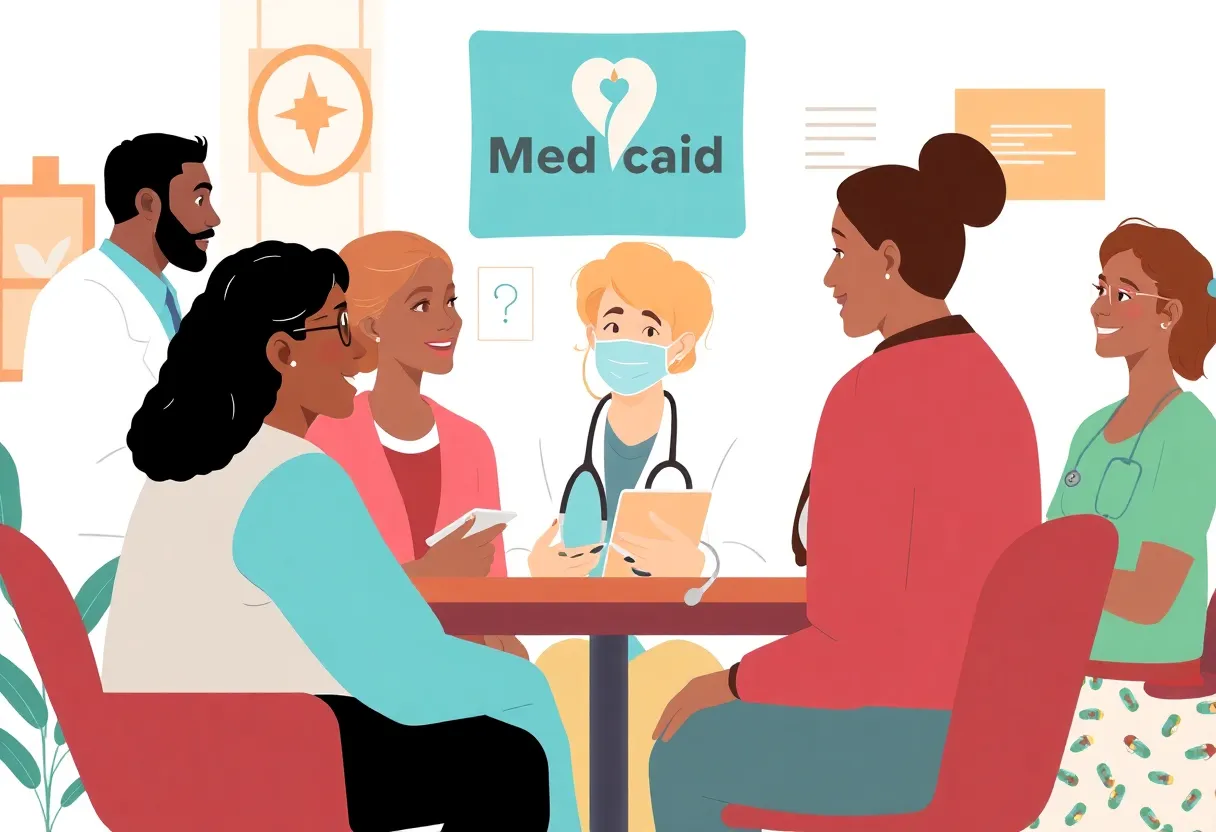News Summary
Georgia’s Pathways to Coverage program, which provides Medicaid to low-income adults meeting work requirements, has received a one-year extension. Enrollment has fallen significantly short of projections, and to address this, the reporting of work activities will now be annual instead of monthly, with new categories introduced for eligibility. Despite criticisms regarding high administrative costs, the program continues to draw support and skepticism from lawmakers and health advocates. The extended program aims to improve coverage access amidst ongoing challenges.
Atlanta, Georgia – Georgia’s Pathways to Coverage program, which provides Medicaid to low-income adults who meet work requirements, has received a one-year extension from the federal government and is now set to continue through December 2026. Governor Brian Kemp announced the extension, emphasizing the need for ongoing support for the program.
The Pathways to Coverage initiative is unique, as it is the only Medicaid program in the United States that ties eligibility to work or community service requirements. However, enrollment in the program has fallen significantly short of projections. As of May, nearly 23 months into its launch, only 7,463 individuals have enrolled, well below the anticipated 47,000 participants.
To address these low enrollment figures and streamline the compliance process, the program will now require enrollees to report their work activities annually, rather than on a monthly basis. Additionally, two new qualifying categories have been introduced to expand eligibility. Parents with children under the age of six will be exempt from work or activity requirements if the child is enrolled in Medicaid. Furthermore, childless, able-bodied adults can meet the eligibility requirements by complying with other assistance programs, such as the Supplemental Nutrition Assistance Program (SNAP).
Despite the one-year extension, the program has drawn criticism for its high administrative costs, which have consumed two-thirds of its implementation budget. Reports indicate that over half of the $80 million spent on the program has gone to contractors for administrative expenses, raising concerns about resource allocation. For comparison, administrative costs from fiscal year 2021 through early 2025 reached $54.2 million, while only $26.2 million was allocated to healthcare spending. There has been a noted decrease in administrative spending from 96.5% in fiscal year 2023 to 58.8% in fiscal year 2024, with expectations of further improvement in 2025.
Critics, including health policy researchers, have labeled these administrative expenditures as wasteful, contending that they complicate access to essential healthcare coverage. Senate Democratic Leader Harold Jones described the program as “woefully inadequate,” arguing that it leaves many eligible adults without necessary healthcare services. In contrast, some Republican leaders have defended the extension, stating it signifies progress and positively impacts people’s lives.
In addition to the concerns over eligibility and administrative costs, the Pathways to Coverage program is limited, allowing Medicaid only to adults earning no more than the federal poverty level, currently set at $15,650 annually. This approach stands in contrast to national trends, where most adults on Medicaid in expanded states are already employed, highlighting a significant discrepancy in how Georgia manages its Medicaid program.
Governor Kemp has also criticized the Biden administration, blaming it for hindering the implementation of the program and contributing to escalating costs. In remarks, he expressed appreciation for the support received during the Trump administration, contrasting it with the current federal government’s involvement.
The extension of the Pathways program will facilitate continued monitoring of its effectiveness, especially in light of its notably low enrollment figures. A recent report suggested that various administrative challenges and barriers prevent eligible citizens from obtaining the necessary coverage through this program. As it stands, the Georgia Pathways to Coverage program, while newly extended, remains a contentious topic among lawmakers and health advocates alike.
Deeper Dive: News & Info About This Topic
- Fox 5 Atlanta
- Wikipedia: Medicaid in the United States
- Savannah Now
- Google Search: Georgia Medicaid work requirement
- AP News
- Encyclopedia Britannica: Health Insurance
- WSB TV
- Google News: Georgia Pathways to Coverage

Author: STAFF HERE AUGUSTA WRITER
The AUGUSTA STAFF WRITER represents the experienced team at HEREAugusta.com, your go-to source for actionable local news and information in Augusta, Richmond County, and beyond. Specializing in "news you can use," we cover essential topics like product reviews for personal and business needs, local business directories, politics, real estate trends, neighborhood insights, and state news affecting the area—with deep expertise drawn from years of dedicated reporting and strong community input, including local press releases and business updates. We deliver top reporting on high-value events such as Arts in the Heart Festival, Westobou Festival, and Masters Week. Our coverage extends to key organizations like the Augusta Metro Chamber of Commerce and Greater Augusta Arts Council, plus leading businesses in manufacturing and healthcare that power the local economy such as Textron Specialized Vehicles, Cardinal Health, and Nutrien. As part of the broader HERE network, including HEREAtlanta.com and HERESavannah.com, we provide comprehensive, credible insights into Georgia's dynamic landscape.


